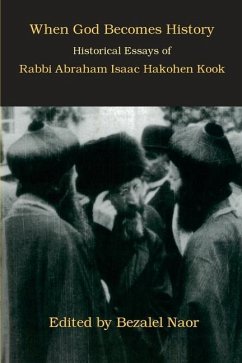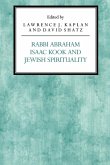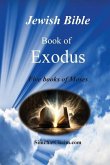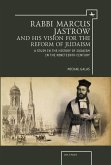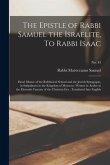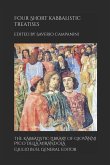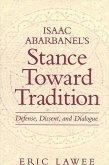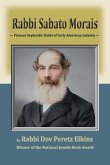Abraham Isaac Hakohen Kook (1865-1935) served as the Ashkenazic Chief Rabbi of Erets Israel during the period of the British mandate. Rav Kook was a polymath, equally talented as a Talmudic legalist and rationalist philosopher, on the one hand, and as a mystic and poet, on the other. Today, we would say that he was both "left and right hemisphere." The present collection brings together in English translation Rav Kook's contributions to the field of Jewish history, though perhaps "historiosophy" would be the better word. Rav Kook joins the ranks of those great Jewish thinkers who preceded him in interpretation of history: Maharal of Prague, Moses Hayyim Luzzatto and Zadok Hakohen of Lublin. If Rav Kook's philosophy were to be summed up in a single word, it would be: Kelaliyut or universality. Whereas most of us are held captive by individual events, Rav Kook has a great gift for the overview of history. He brings this gift to bear in his ability to provide perspective on the modern rebirth of Israel against the backdrop of mankind's ongoing spiritual evolution. In the latter regard, his vision has sometimes been compared to that of Teilhard de Chardin and Sri Aurobido, or more recently Ken Wilber. Contained in this collection are Rav Kook's eulogy for Herzl and Rav Kook's remarks at the opening of Hebrew University in Jerusalem. The essays are placed in historic context and provided with copious scholarly endnotes.
Hinweis: Dieser Artikel kann nur an eine deutsche Lieferadresse ausgeliefert werden.
Hinweis: Dieser Artikel kann nur an eine deutsche Lieferadresse ausgeliefert werden.

